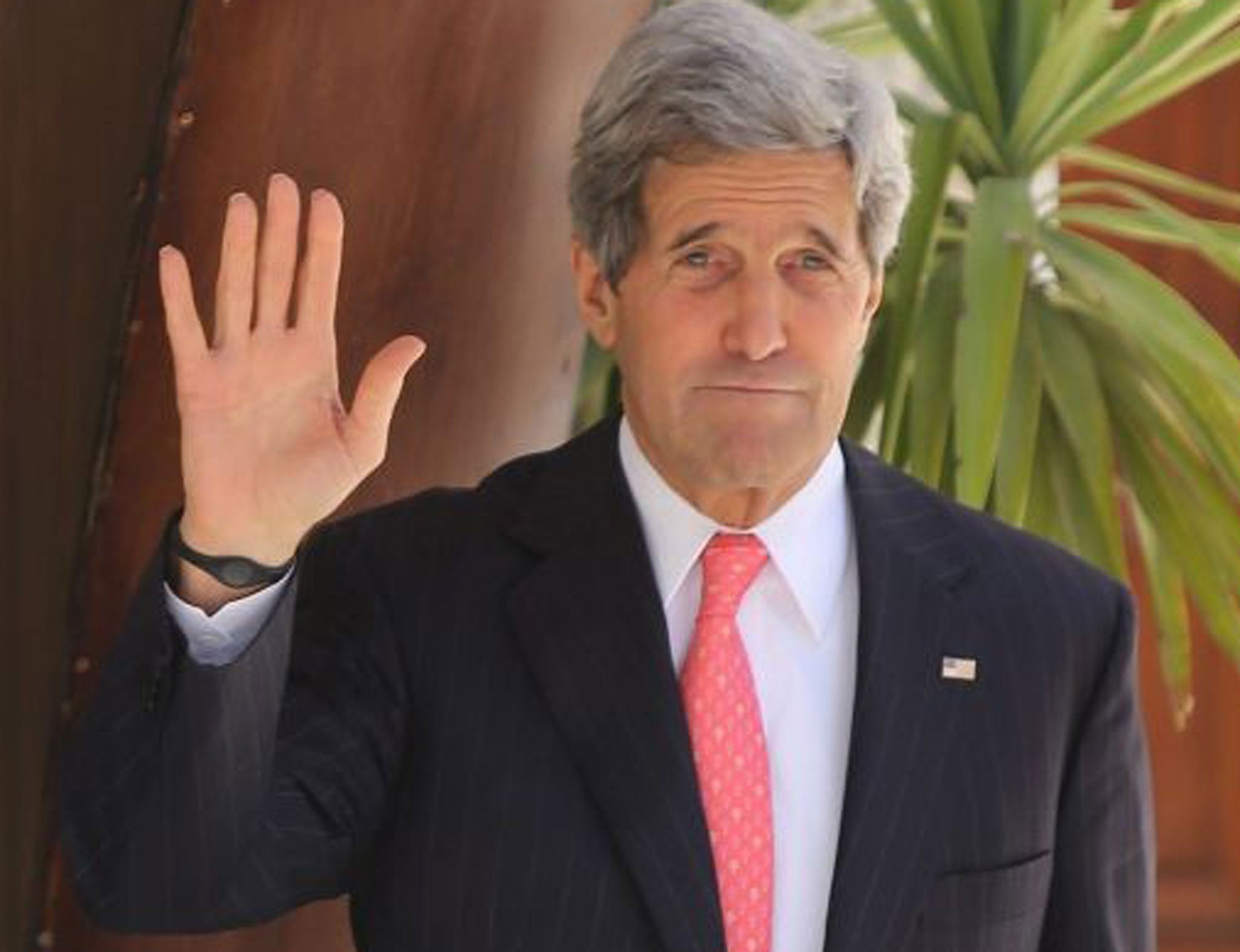US Secretary of State John Kerry in Middle East for separate talks with Israel and Palestine
Israel visit is the fourth in as many months

Your support helps us to tell the story
From reproductive rights to climate change to Big Tech, The Independent is on the ground when the story is developing. Whether it's investigating the financials of Elon Musk's pro-Trump PAC or producing our latest documentary, 'The A Word', which shines a light on the American women fighting for reproductive rights, we know how important it is to parse out the facts from the messaging.
At such a critical moment in US history, we need reporters on the ground. Your donation allows us to keep sending journalists to speak to both sides of the story.
The Independent is trusted by Americans across the entire political spectrum. And unlike many other quality news outlets, we choose not to lock Americans out of our reporting and analysis with paywalls. We believe quality journalism should be available to everyone, paid for by those who can afford it.
Your support makes all the difference.US Secretary of State John Kerry held separate talks with Israeli and Palestinian officials on Thursday and acknowledged there was considerable scepticism that the two sides would resume peace negotiations.
There were no signs of any breakthrough as Kerry visited Israel for the fourth time in his four months in office to try to revive a peace process that has been moribund for more than two years.
Israeli-Palestinian negotiations broke down in late 2010 in a dispute over Israeli construction of Jewish settlements on occupied West Bank land that the Palestinians want for a state.
“I know this region well enough to know that there is scepticism. In some quarters there is cynicism and there are reasons for it. There have been bitter years of disappointment,” Kerry said as he and Israeli Prime Minister Benjamin Netanyahu posed for pictures.
“It is our hope that by being methodical, careful, patient, but detailed and tenacious, that we can lay out a path ahead that can conceivably surprise people but certainly exhaust the possibilities of peace.”
Kerry met Palestinian President Mahmoud Abbas for lunch in the West Bank city of Ramallah and was to return to Jerusalem to see Shimon Peres, who holds Israel's largely ceremonial post of president, and have breakfast on Friday with Netanyahu.
Before their meeting on Thursday morning, Netanyahu said he wanted to restart peace talks.
“It's something I hope the Palestinians want as well and we ought to be successful for a simple reason - when there's a will, we'll find a way,” Netanyahu said.
The two men discussed ways to advance peace, Kerry's ideas for an economic plan to boost Palestinian growth and the “escalating violence” in neighboring Syria's civil war, a senior U.S. State Department official told reporters after the meeting.
Last week, Kerry telephoned Netanyahu to voice U.S. concern at Israel's plan to declare legal four unauthorised West Bank settler outposts.
Most of the world deems all Israeli settlements in the West Bank as illegal. Israel, which captured the land in the 1967 Middle East War, disputes this and distinguishes between about 120 government-authorised settlements and dozens of outposts built by settlers without official sanction.
The main issues that would have to be resolved in a peace agreement include the borders between Israel and a Palestinian state, the future of Jewish settlements, the fate of Palestinian refugees and the status of Jerusalem.
In his visits to the region, Kerry is also trying to put together an economic package for the Palestinians to go alongside the US political initiative.
European diplomats, in meetings with Palestinian leaders, have been trying to steer them away from any notion the European Union might present a peace plan of its own. British Foreign Secretary of William Hague was also due to hold talks with Netanyahu and Abbas later on Thursday.
Reuters
Subscribe to Independent Premium to bookmark this article
Want to bookmark your favourite articles and stories to read or reference later? Start your Independent Premium subscription today.
Join our commenting forum
Join thought-provoking conversations, follow other Independent readers and see their replies
Comments